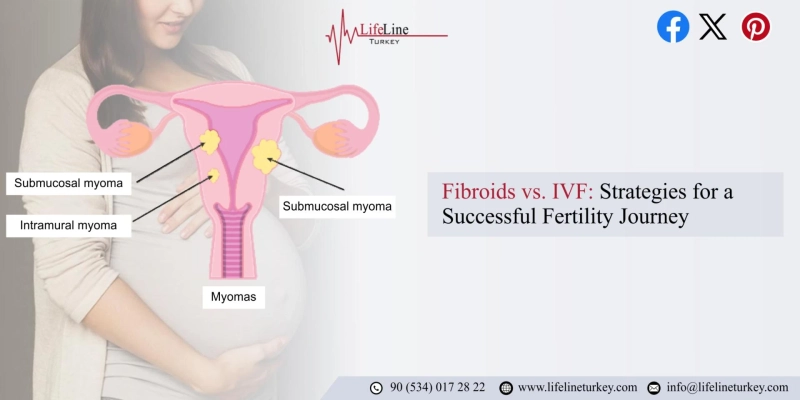The journey to parenthood is deeply personal, and for many couples, it may not be as simple as they envisioned. Whether you're considering natural conception or IVF in Turkey, navigating the world of fertility can be confusing.
In recent years, advancements in medical science have provided couples with various options for conceiving a child. In vitro fertilization (IVF) has gained significant popularity. However, misconceptions surrounding IVF and its comparison to natural conception persist. This blog aims to dispel these misconceptions by comparing IVF and natural conception.
Natural Conception: The Traditional Route
Natural conception occurs when a sperm fertilizes an egg within a woman's body, typically through sexual intercourse. During ovulation, an egg is released from the ovaries and travels through the fallopian tubes. If a sperm successfully penetrates and fertilizes the egg during this journey, conception occurs.
Misconception 1: IVF is the Solution for Infertility Only
One common misconception is that IVF is exclusively for couples facing infertility issues. While it's true that IVF treatment in Turkey is a widely used treatment for infertility, it's also utilized for various other reasons. These include genetic disorders, same-sex couples, and individuals opting for elective fertility preservation.
Understanding IVF:
In vitro fertilization (IVF) involves fertilizing an egg with sperm outside the body in a laboratory setting. Typically, the process starts with ovarian stimulation to generate multiple eggs, followed by their surgical retrieval. Sperm fertilizes these eggs in a laboratory dish, and we culture the resulting embryos for a few days before transferring them to the uterus.
Misconception 2: IVF Guarantees Pregnancy
Another prevalent misconception is that IVF always results in a successful pregnancy. While IVF in Turkey has significantly higher success rates compared to natural conception, in some instances, it's not a guarantee. Success rates vary depending on the woman's age, egg quality, and underlying fertility issues. Additionally, multiple IVF cycles may be necessary before achieving pregnancy.
Misconception 3: IVF Increases the Risk of Multiple Pregnancies
While it's true that IVF can result in multiple pregnancies, the risk is not inherent to the IVF procedure itself. Instead, the risk of multiple pregnancies is primarily associated with the transfer of multiple embryos during IVF treatment in Turkey. However, advancements in IVF techniques, such as elective single embryo transfer (eSET), aim to minimize this risk while maintaining high success rates.
Misconception 4: IVF is an Easy Solution
Some individuals perceive IVF as a simple solution to fertility problems. However, the IVF process can be physically, emotionally, and financially demanding. It involves multiple stages, including hormone injections, frequent monitoring, and surgical procedures. Additionally, one should not underestimate the emotional toll of IVF, particularly in cases of failed cycles.
Making the Right Choice with Lifeline Turkey!
While IVF and natural conception are different methods of achieving pregnancy, they each have their advantages and limitations. Dispelling common misconceptions surrounding IVF is crucial for providing accurate information to individuals considering fertility treatments. Ultimately, choosing IVF in Turkey and natural conception depends on individual circumstances, preferences, and medical advice. If you have decided on IVF treatment, you can consult with the expert doctors at Lifeline Turkey.


